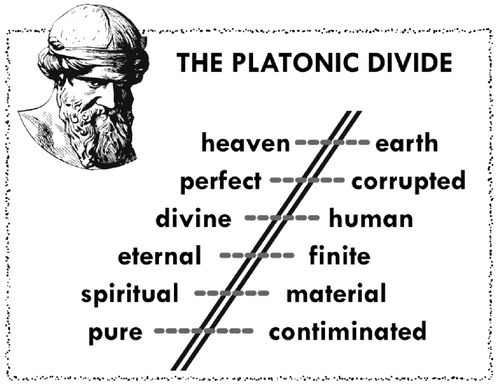 |
| I wonder if Cardinal Bertone felt the need to send Archbishop Vigano packing because the good Archbishop was photographed hanging with the wrong people. |
John Allen has just posted another piece on Vatican corruption. In this one the Vatican denies they are really linked to the corruption. This time the corruption involves a Dominican friar, Rev Francesco Maria Ricci, who somehow accessed two million dollars which he invested and lost in an Italian ponzi scheme. The denied connection stems from the fact the Dominican was a postulator for the causes of saints on behalf of the Dominican order, not an employee of the Congregation for the Causes of Saints. In other words said friar was a client of the congregation, not a member of the Congregation. Here's the text of the Vatican denial:
The Rev. Francesco Maria Ricci, who is spoken on in the article, is a religious of the Dominicans, who works on behalf of his Order.
He does not belong in any to the Congregation for the Causes of Saints. In fact, it’s important to note that postulations and postulators are ‘clients’ of the Congregation, to which they address themselves to promote their causes, but they absolutely are not part of the Congregation.
Therefore, it must be underscored that the Congregation for the Causes of Saints and its Prefect, Cardinal Angelo Amato, have absolutely nothing to do with the events spoken of in the article in question.
The Vatican is pretty funny sometimes. Fr Marcial Maciel was not an employee of the Vatican either but he sure was up to his neck in corrupting the Vatican and in Vatican corruption. Fr Ricci may be one step removed from actually working for the Vatican, but he is not one step removed from funneling money into and out of the Vatican by virtue of being a 'client postulator' of the Congregation for the Causes of Saints. Sainthood does not come cheap, even for Dominican saints and somehow this particular postulator found himself with 2 million Eu in disposable funds. I will be very interested in following this story because I suspect there will eventually be other names associated with this scandal who also have access to serious funds from unaccounted sources with Vatican connections.
This brings me to the other Vatican corruption story John Allen has been reporting on, that of Archbishop Vigano and his sudden transfer from the Vatican to the US as Papal Legate. Archbishop Vigano is a man I can truly respect. Too bad Cardinal Bertone and his like minded cronies didn't respect him. But of course John Allen comes to the rescue to explain Bertone's and Benedict's actions. I just love Allen's excuses. They are so inventive:
- First, it's never wise to take everything you hear in the Italian press at face value. Some of what passes for reporting in Italy would make the biggest blowhards and scandal hounds in the American media look like Edward R. Murrow. (And some of it is absolutely true.)
- Second, much of what Viganò's letter refers to as "corruption" may have a relatively innocent explanation, especially by the norms of traditional Vatican culture. For instance, when bidding procedures are fudged to award contracts, it's not necessarily because somebody's been bought off, but rather to reward firms and individuals seen as loyal to the pope, to the church or to key figures in the hierarchy. That's not to defend such practices, simply to acknowledge they're not what Americans usually mean by "corrupt." (So corruption is not corruption if it's done in a traditional culture of corruption. This must be why Macial and the Legion gave 'donations' not bribes. How quaint this all is.)
- Third, by most accounts, and despite his background in diplomacy, Viganò didn't always have a deft touch in terms of office politics. His transfer, in other words, wasn't necessarily a referendum on his financial philosophy so much as his rocky relationships with other personnel. (Vigano made the big faux pas of 'not going along to get along'.)
- Fourth, if Benedict XVI truly wanted to repudiate Viganò, there were certainly plenty of options other than naming him to arguably the most prestigious position Vatican diplomacy has to offer. (Benedict couldn't afford to have it appear that he was in fact punishing Vigano for ruthlessly cutting out the corruption and Vigano certainly doesn't buy the 'promotion' bs.)
So there we have it, Archbishop Vigano was promoted for a job well done and there is no corruption in the Vatican just a bit of slop in how business is conducted. Personally I'm trying to figure out how Archbishop Vigano was able to save the Vatican City States some 44 million in less the 14 months. That's a lot of slop. It leads me to believe all those contracts rewarded for 'loyalty to the Vatican' had a lot of paybacks to those who let those contracts. This would be business by the Mafia model, not the Jesus model. But then Jesus didn't need to take kick backs because Jesus could make His own bread. Just a stray thought.
As bad as the sexual abuse crisis is, I made the point a very long time ago that the root of all the corruption associated with the Roman Catholic Church is money. I wrote when the lights begin to shine on how the Vatican does business the real rats will be exposed. One of those rats is the cronyism and the cultivating of generations of clerics to maintain the Vatican's version of 'the Family'. My prophetic instinct tells me the next financial scandal to be exposed will center on Mr. Ettore Gotti Tedeschi, the head of the Vatican Bank and the global reach of Opus Dei--especially in South America. Archbishop Vigano has only exposed the very tip of very big iceberg.








